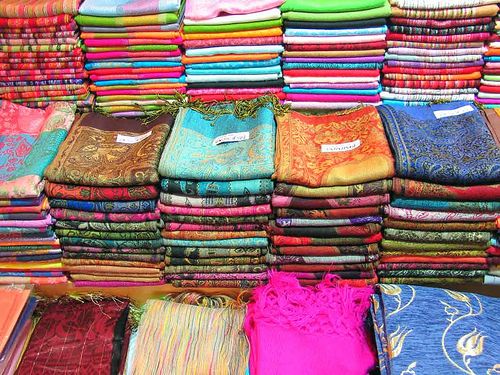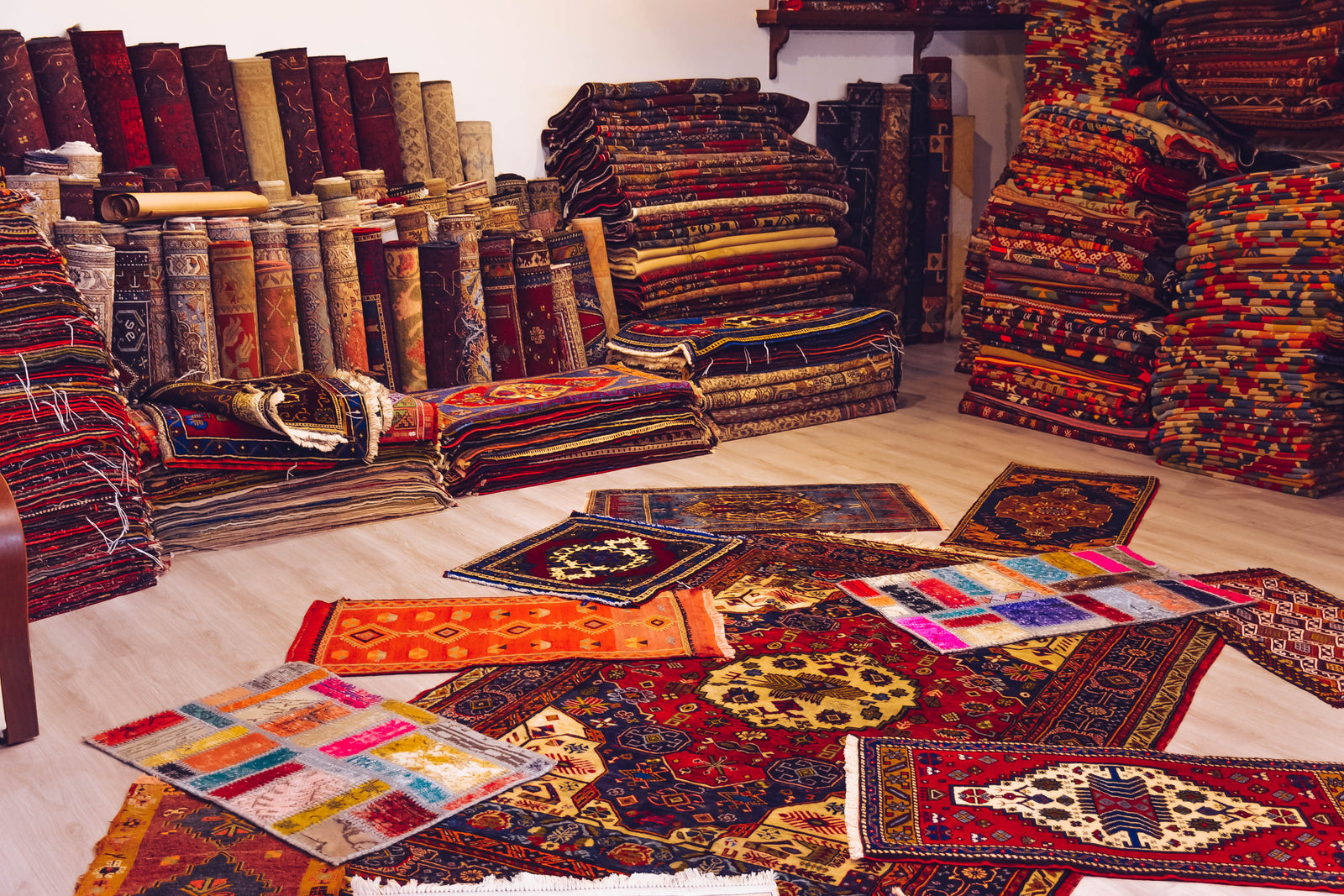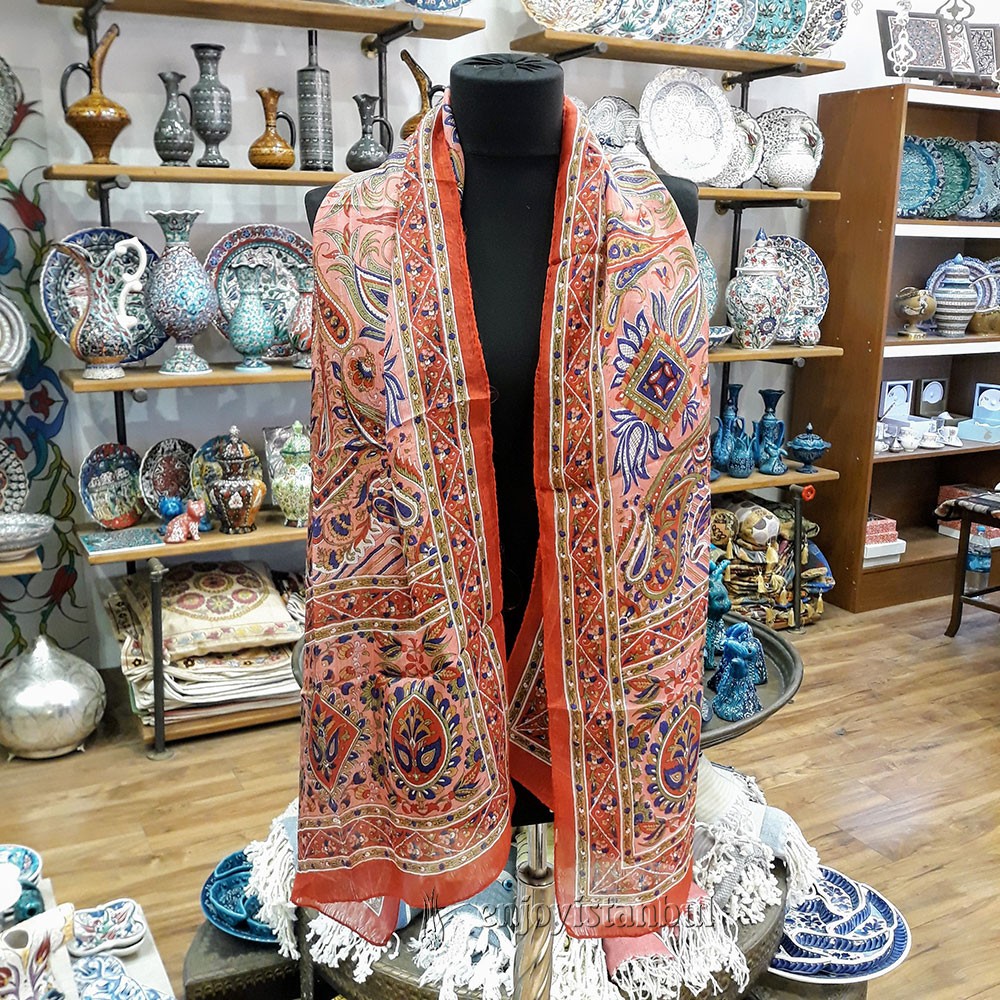
Advertisements
Finding the best textiles in Istanbul should not be a hard thing because Istanbul, a city that bridges two continents, is a melting pot of cultures, history, and art. Among its many treasures, the vibrant textile market stands out as a testament to its rich heritage. From luxurious silks to intricate kilims, Istanbul offers an unparalleled shopping experience for textile enthusiasts. This guide will provide you with everything you need to know to navigate the bustling bazaars and sophisticated boutiques, ensuring you make the most informed purchases.
A Glimpse into Istanbul’s Textile History
The Silk Road Connection
Istanbul’s strategic location on the Silk Road has historically made it a hub for the trade of textiles. This ancient network of trade routes not only brought goods but also facilitated cultural exchanges, leaving a lasting impact on the city’s textile traditions.
Ottoman Influence on Textiles in Istanbul
The Ottoman Empire played a significant role in shaping Istanbul’s textile industry. Renowned for their luxurious fabrics, the Ottomans introduced intricate designs and superior craftsmanship that continue to influence modern textile production in the region.
For more details on Turkish textiles and history, you can visit the Turkish Cultural Foundation
Top Textile Markets in Istanbul
1. Grand Bazaar
No visit to Istanbul is complete without exploring the Grand Bazaar. With over 4,000 shops, this historic market offers a vast array of textiles, from handwoven carpets to delicate lace. Key areas to explore include the Sandal Bedesten and the Sivas Caddesi, where you can find high-quality silks and antique textiles.
2. Spice Bazaar
Though primarily known for its spices, the Spice Bazaar is also a hidden gem for textile lovers. Here, you can find a selection of vibrant scarves, pashminas, and traditional Turkish towels (peshtemals) at competitive prices.
3. Arasta Bazaar
Located near the Blue Mosque, the Arasta Bazaar is a quieter alternative to the Grand Bazaar. It offers a curated selection of textiles, including hand-loomed kilims and tribal rugs, making it an ideal spot for collectors seeking unique pieces
Boutique Shopping: Contemporary Meets Traditional
Abdulla Natural Products
Abdulla is renowned for its organic, handwoven textiles. Specializing in peshtemals and home linens, this boutique emphasizes sustainable practices and traditional techniques, ensuring that each piece is both beautiful and eco-friendly.
Jennifer’s Hamam
For those seeking luxury, Jennifer’s Hamam offers some of the finest textiles in Istanbul. With a focus on high-quality materials and artisanal craftsmanship, this boutique is perfect for those looking to invest in heirloom pieces.
Key Textiles in Istanbul to Look For
1. Turkish Rugs and Kilims

Turkish rugs are famous for their intricate patterns and durability. Kilims, flat-woven carpets, are particularly popular for their geometric designs and vibrant colors. When buying a rug, check for the quality of the weave and the materials used.
Advertisements
2. Silk and Cashmere

Istanbul’s silk and cashmere products are highly sought after. Silk scarves and shawls make for elegant accessories, while cashmere items provide both warmth and luxury. Look for items labeled “100% silk” or “100% cashmere” to ensure authenticity.
3. Embroidered Fabrics
Embroidery is a significant aspect of Turkish textiles. From delicate lace to bold tapestries, these fabrics are adorned with intricate designs that reflect the region’s artistic heritage. Pay attention to the stitching and patterns to determine the quality of the embroidery.
Tips for Buying Textiles in Istanbul
1. Bargaining
Bargaining is a common practice in Istanbul’s markets. Start by offering half of the quoted price and negotiate until you reach a mutually agreeable amount. Always be polite and respectful during the process.
2. Recognizing Quality
To ensure you’re purchasing high-quality textiles, examine the fabric closely. Check for even stitching, consistent patterns, and durable materials. When buying rugs, look at the back to see if the pattern matches the front, indicating a handwoven piece.
3. Understanding Authenticity
With the prevalence of mass-produced items, it’s essential to verify the authenticity of your purchases. Ask the seller about the origin and craftsmanship of the textile. Authentic pieces often come with a certificate of authenticity or detailed information about their production.
Caring for Your Textiles
Cleaning and Maintenance
Proper care is crucial to maintaining the beauty and longevity of your textiles. Most handmade textiles require gentle cleaning methods. For rugs, professional cleaning is recommended. For silks and delicate fabrics, hand washing with mild detergent is best.
Storage
Store your textiles in a cool, dry place away from direct sunlight to prevent fading and damage. Use breathable fabric covers to protect them from dust and pests.
Conclusion
Buying textiles in Istanbul is an enriching experience, offering a unique glimpse into the city’s rich cultural tapestry. Whether you’re a seasoned collector or a casual shopper, this guide will help you navigate the markets with confidence, ensuring you take home beautiful and authentic pieces. Embrace the vibrant colors, intricate patterns, and exceptional craftsmanship that define Istanbul’s textile heritage.
For a stylish blend of tradition and modernity, check out our article on the 10 Popular Turkish Fashion Brands to Shop Online and discover how these brands incorporate Istanbul’s rich textile heritage into their contemporary designs.
Advertisements

Leave a Reply